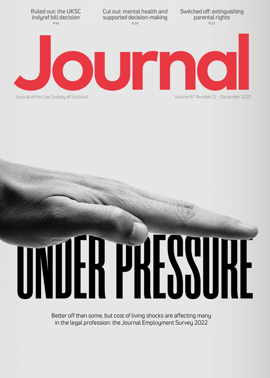Intellectual property: "Reclaiming the UK statute book"
Brexit always came with the premise of “taking back control of our laws”, and almost two years on from the end of the transition period, the Government continues to work towards this goal. Its current attempt at this can be seen in the Retained EU Law (Revocation and Reform) Bill, through which it is “reclaiming the UK statute book”. But what repercussions does this have for our existing and familiar intellectual property laws?
The bill, which at a high level gives power to preserve, restate, amend, replace and revoke certain retained EU legislation (“REUL”), was introduced this September. It amends the European Union (Withdrawal) Act 2018, arguably the main element being that certain REUL is subject to “sunsetting” at the end of 2023 (with an ability to delay this until 23 June 2026). In practical terms, this means that any legislation not restated or amended will automatically lapse.
The bill has brought considerable consternation as to the degree of review which can be undertaken to a wide array of REUL in such a short time period. With much of EU law being immersed within our domestic legislation, it is no easy task. Scotland in particular has highlighted its concern, with Constitution Secretary Angus Robertson asking the Government to consider withdrawing the bill due to the negative impact it may have on individuals and businesses.
What does the bill mean for IP law?
Legislation
The bill’s “sunsetting” scope, covering EU-derived subordinate legislation and retained direct EU legislation, remains relatively uncertain. While the Intellectual Property Office (“IPO”) has published a list of 67 pieces of REUL relating to IP which may fall under the bill, it notes that there will be legislation yet to be identified. Nevertheless, the list includes noteworthy secondary legislation such as the Intellectual Property (Enforcement, etc) Regulations 2006, which governs damages for IP infringement, as well as disclosure requirements and the publication of such decisions in Scotland. While sunsetting does not mean that all relevant legislation will just disappear, there is a possibility that it could be revoked if that is what is decided or if a piece of relevant REUL slips through the cracks.
Initially we had no real idea what ministers would decide or which policy areas would be prioritised, leaving considerable uncertainty for businesses who own IP. However, the IPO recently published guidance on the topic. Some of the key points include the interdependency of IP with other policies such as e-commerce (and the need to liaise with others on such interdependencies when conducting the review), and the importance of stability and certainty for IP – undeniably a benefit. Nevertheless, the IPO explicitly notes that it will consider reforms which benefit innovation and growth, meaning we may see divergences on the horizon.
The courts
Another possible effect on IP law is likely to come from the updated test for applying EU case law and the new test for EU-inspired case law. The post-IP completion day test asked for divergence “when it appears right to do so”, the test which the courts use when deciding to depart from their own case law. Under the bill, the courts will instead be bound to consider several factors, namely:
- any relevant changes in circumstances;
- the extent to which the proper development of domestic law is restricted by applying the case;
- in regard to retained EU case law, the fact that decisions of a foreign court are not binding; and
- in regard to retained domestic case law, the extent to which the case is determined or influenced by retained EU case law from which the court has departed or would depart.
The updated and new tests may provide greater discretion to judges to depart, which the English Court of Appeal was resistant to do in the copyright case TuneIn Inc v Warner Music UK Ltd [2021] EWCA Civ 441. If passed, we will wait to see if this new test encourages greater divergence in practice.
We have seen a wealth of case law from the EU Court of Justice related to the various IP rights over many years, a more recent example being Cofemel v G-Star Raw (C-683/17) in the copyright sphere. With departure from case law not being constrained to certain types of REUL, and therefore covering key IP legislation such as the Trade Marks Act 1994, the potential to depart from this case law could have wide ranging implications. The IPO acknowledges the importance of EU case law in the IP sector, noting its intention to codify certain precedents into legislation “to ensure the continued functioning of the IP framework”.
Conclusions
With the bill currently at committee stage in the House of Commons, there remains considerable uncertainty as to the potential changes for IP law, whether that is the scope of IP legislation potentially being amended or revoked, or the impact on our case law. We may seek some comfort from the IPO’s recent guidance. Nevertheless, with considerable opposition to the bill, we await to see the exact impact (if any) which this bill and the powers it contains will have on the UK legal landscape for IP. Definitely a case of “watch this space”.
Perspectives
Features
Briefings
- Criminal court: Farewell retrospective
- Agriculture: A future support framework
- Corporate: Is there a creditor duty?
- Intellectual property: "Reclaiming the UK statute book"
- Sport: Flouting their own rules?
- Succession: Crofting tenancy transfers in intestacy
- Scottish Solicitors' Discipline Tribunal: December 2022
- Property: Conveyancing – the future is in our hands
- In-house: With a fair wind







